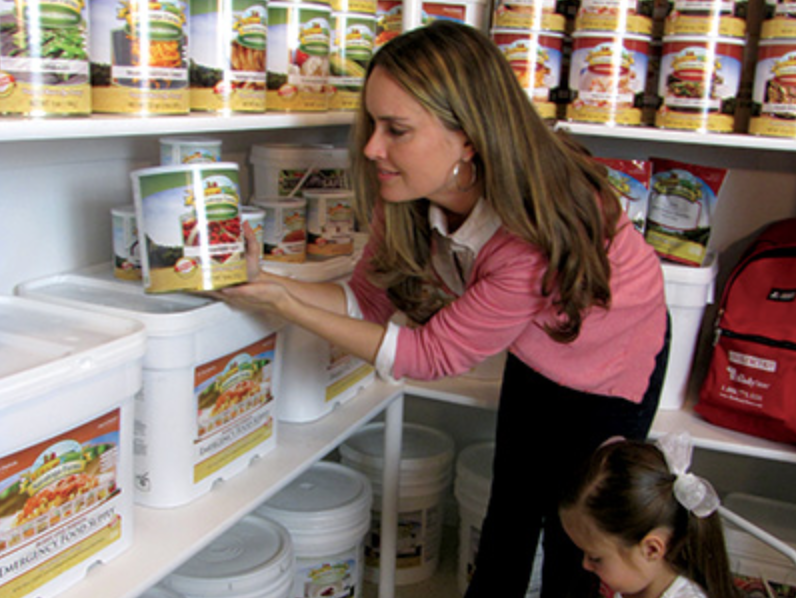When apocalyptic fervor periodically whips up, many people point to the Mormons as those who are best prepared for a doomsday scenario. Members of the Church of Jesus Christ of Latter-Day Saints (LDS) are widely known for keeping a large supply of food, water, and other emergency supplies in their homes.
I have always assumed that there is some eschatological dogma or special passage in the Book of Mormon that directs them to keep basic necessities on hand.
Turns out that there’s not. Mormons store a good supply of food and water in their homes simply out of a desire to be prudent.
The 2007 LDS guide title “All Is Safely Gathered In” gives the following justification for food storage:
“We encourage Church members worldwide to prepare for adversity in life by having a basic supply of food and water and some money in savings.
We ask that you be wise as you store food and water and build your savings. Do not go to extremes; it is not prudent, for example, to go into debt to establish your food storage all at once. With careful planning, you can, over time, establish a home storage supply and a financial reserve.”
The guide then goes on to offer a few basic guidelines, such as:
- Starting with building a week-long supply of food, and then gradually increasing it until it’s sufficient to last a household for three months or longer.
- Storing water in such a way that it doesn’t become polluted.
- Building up one’s savings by putting aside a little money each week.
As you might imagine, there is a whole culture of food storage among Mormons, consisting of plenty of blogs, social media sites, and publications offering tips on building up and maintaining supplies. There are also what’s known as Mormon “Canneries”, where anyone—including non-Mormons—can buy certain foods in bulk that have been processed to make for easy storage. (You can see if one is located near you here.)
FEMA currently recommends that people keep a food supply in their homes that will last them two weeks in the event of a disaster. One study has shown that the average household probably already has enough food for a month (on a purely caloric basis), assuming no interruption in water supply or cooking energy. (After looking at my own pantry, I think that number seems a bit high.)
But is it more prudent to adopt the Mormon model of keeping a longer-term supply of food and water in one’s home should disaster strike?
Given the complexity of our food delivery system, it’s difficult to envision a scenario where someone would need to keep a food supply in their home that could last more than a month. Of course, history is replete with examples of unanticipated, catastrophic disasters.
But if a catastrophic, systemic disaster of that scale were to happen, you’re probably going to need a good supply of weapons if you actually want to hang on to your food.
















Leave a Comment
Your email address will not be published. Required fields are marked with *